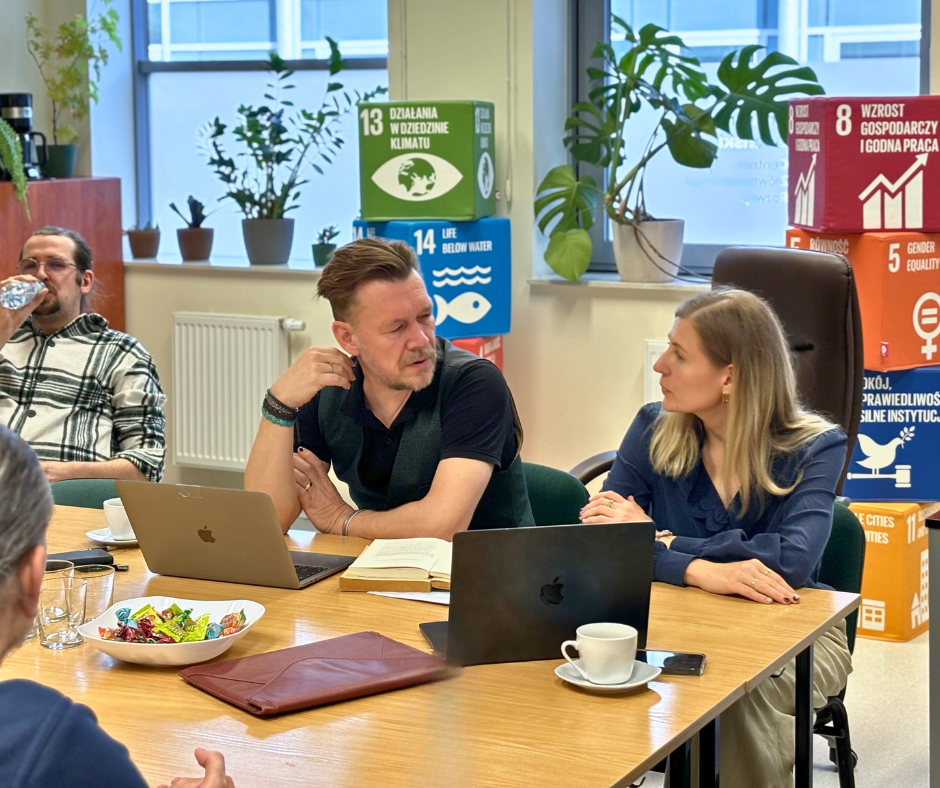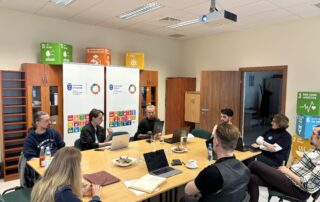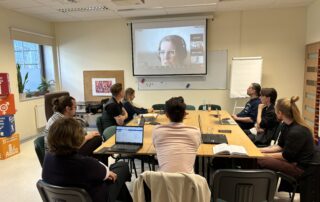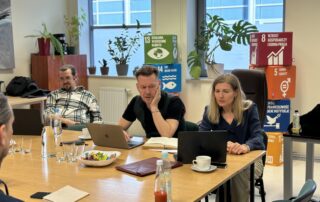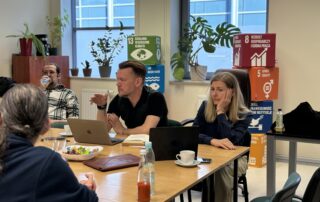The second seminar in the series ‘Cosmophilosophy Thinking Science & Society Out of Order’ with Professor Rick Dolphijn took place. The philosopher from Utrecht University is taking part in the UG Visiting Professors programme at the invitation of the Faculty of Philology of the University of Gdansk. On 24 April 2024, at the Centre for Sustainable Development, he met with UG students and staff to participate in a discussion entitled. ‘On Physical Law and the Politics of Knowledge’.
In the second seminar on ‘cosmophilosophy’ we read texts by Isabelle Stengers and Alfred North Whitehead. Both with a background in science (in chemistry and mathematics respectively) these texts allowed us to think thoroughly about the topic of this gettogether being “On Physical Law and the Politics of Knowledge”.
“For whereas in the first seminar our aim was to rethink the ways in which humanity relates to nature (or not), our aim now was to study the different strategies of science in mapping reality and the consequences this has for our understanding of it”, emphasises Prof. Rick Dolphijn.
Critiquing physical laws and rather affirming the ways in which Pasteur and contemporary DNA analysis searched not to define objects or states but rather aimed recognizing strategies, agencies and ‘becomings’, the authors practiced an ‘ecological’ perspective, rather than a ‘Cartesian’ (as this is still implicitly the standard in science practice today).
Embracing Systems Theory, pointless topology and quantum dynamics, the authors reached out to academia as a whole ; we must move away from the modernist, humanist and dualist prejudices that are still at work in all of our disciplines, if we aim to work together and face the crises of the contemporary in all of their appearances.
Rick Dolphijn
Rick Dolphijn is Associate Professor at Utrecht University (Faculty of Humanities) and Honorary Professor at the University of Hong Kong (Faculty of Arts). He has published widely on ecology, philosophy and the arts. Currently he is a PI in two internationally funded research projects. His last monograph is The Philosophy of Matter (Bloomsbury 2021). As part of the ‘Visiting Professors UG’ programme, he was invited by Irena Chawrilska, PhD and the Faculty of Philology to visit the University of Gdansk, to teach and collaborate on research in the area of cosmophilosophy.
What is the CZRUG Culture for sustainable development programme?
In the Culture for Sustainable Development Programme, CSDUG creatively ponders the role of culture in the attainment of the Sustainable Development Goals. Agenda 2030 as a strategy for the world still stands and the university’s goal is to create new ideas and in the end develop solutions on the path towards a sustainable future and empower communities to response-ability for their communities and land as Donna Haraway states. New narratives, ways of thinking and innovations can only emerge through negotiation. Making worlds collectively enables humans to look around rather than ahead. Making worlds happens also beyond the humans, within the ecological systems in which each organism has potential to operate as a change agent towards sustainability.


